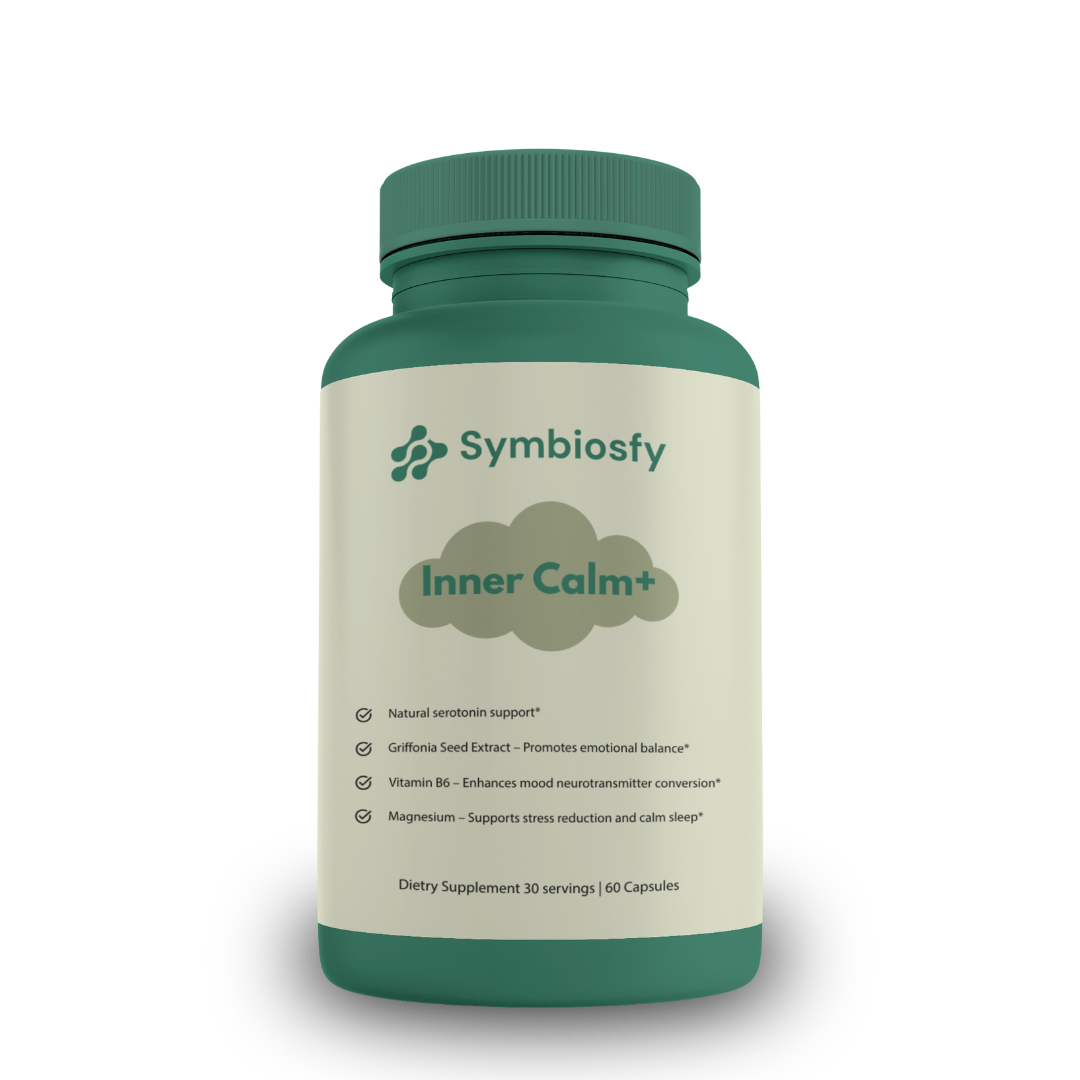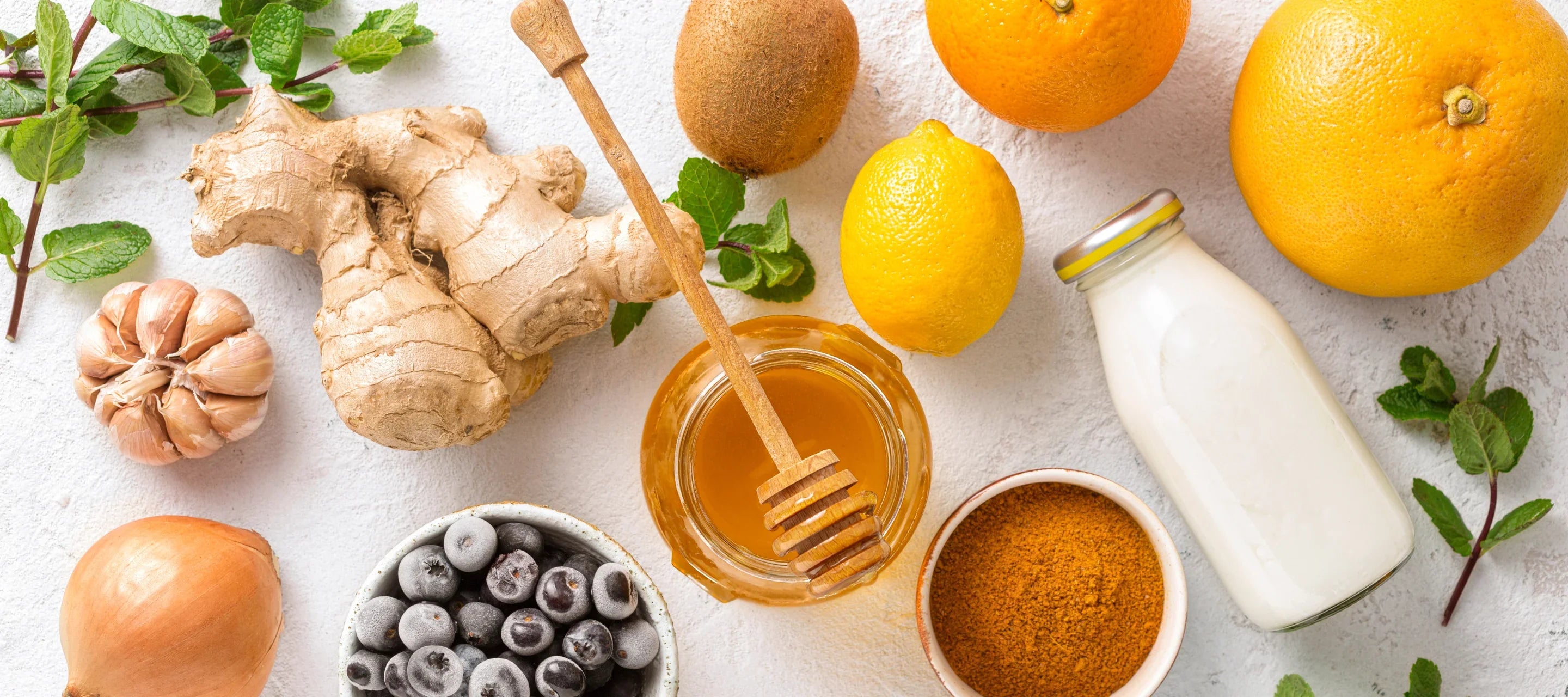Foods That Naturally Support a Healthy Immune Response
Your immune system works tirelessly every day — protecting you from harmful invaders and helping you recover from everyday challenges. While there’s no “magic pill” for immunity, the food you eat plays a powerful role in keeping your body’s defences strong.
By focusing on nutrient-rich whole foods, herbs, and spices, you can give your immune system the tools it needs to function at its best — naturally.
1. Fermented Foods for Gut-Immune Support
Around 70% of your immune system resides in your gut — meaning your digestive health and immune health are closely connected. Fermented foods help introduce beneficial bacteria (probiotics) that support gut balance, which in turn can positively influence immune function.
Examples:
-
Sauerkraut
-
Kimchi
-
Yogurt (unsweetened, live cultures)
-
Kefir
-
Miso
How they help: Fermentation increases the bioavailability of nutrients, and live beneficial bacteria may support the gut lining — a key barrier in immune defence.
Reference: Hill, C., et al. (2014). “Expert consensus document: The International Scientific Association for Probiotics and Prebiotics consensus statement on the scope and appropriate use of the term probiotic.” Nature Reviews Gastroenterology & Hepatology, 11(8), 506–514.
2. Herbs With Immune-Nourishing Compounds
Certain herbs have been used for centuries in traditional medicine systems for their immune-supportive properties.
Examples:
-
Garlic: Contains allicin, a compound studied for antimicrobial properties.
-
Ginger: Naturally warming, may help promote circulation and antioxidant activity.
-
Echinacea: Traditionally used to support immune resilience during seasonal changes.
How they help: Many herbs contain phytonutrients, antioxidants, and bioactive compounds that may help modulate immune function and promote a balanced inflammatory response.
Reference: Percival, S.S. (2016). “Aged garlic extract modifies human immunity.” Journal of Nutrition, 146(2), 433S–436S.
3. Whole Plant Foods Packed With Micronutrients
Whole fruits, vegetables, legumes, and seeds provide the essential vitamins and minerals your immune cells rely on to function properly.
Key picks:
-
Citrus fruits (oranges, grapefruit) for vitamin C
-
Leafy greens (spinach, kale) for folate and antioxidants
-
Pumpkin seeds for zinc
-
Berries for polyphenols
How they help: Micronutrients like vitamin C, vitamin A, zinc, and selenium are directly involved in the development, activation, and regulation of immune cells.
Reference: Maggini, S., et al. (2018). “Immune function and micronutrient requirements change over the life course.” Nutrients, 10(10), 1531.
4. Anti-Inflammatory Spices
Chronic, low-grade inflammation can make it harder for your immune system to do its job effectively. Spices rich in antioxidants may help support a balanced inflammatory response.
Examples:
-
Turmeric: Contains curcumin, a potent antioxidant compound.
-
Cinnamon: Rich in polyphenols that support metabolic and immune health.
-
Black pepper: Enhances curcumin absorption.
How they help: Many spices work by influencing key signalling pathways in the immune system, encouraging balance rather than overreaction.
Reference: Hewlings, S.J., & Kalman, D.S. (2017). “Curcumin: A review of its effects on human health.” Foods, 6(10), 92.
Bringing It All Together
The most powerful immune-supportive diet is one that’s consistent, varied, and full of whole, unprocessed foods. You don’t need to overhaul your eating habits overnight — even adding one or two of these foods to your weekly routine can make a difference over time.
When combined with daily habits like quality sleep, stress management, and movement, your diet becomes one of your strongest tools for long-term immune health.

